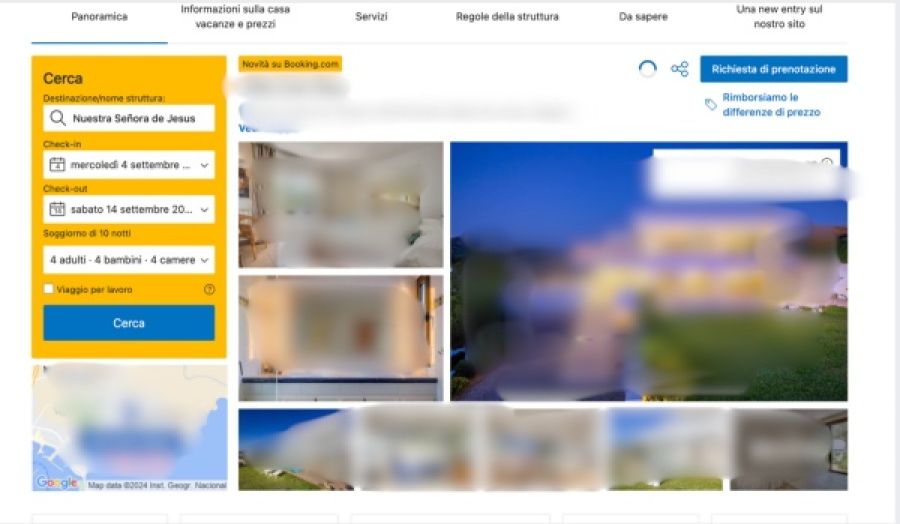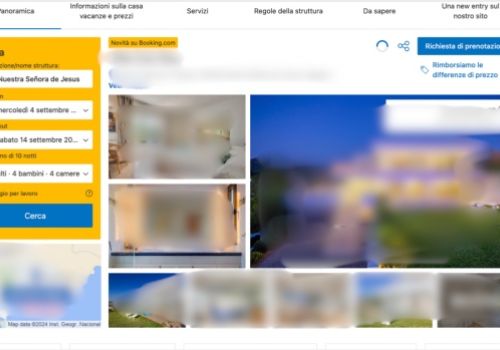“People create web pages and sell homes that are not theirs”

Statements by the President of AVAT, José Antonio Llano.
SOURCE: NOUDIARI, APRIL 4, 2024
Laura Ferrer
Scam attempts through false advertisements for tourist rental homes in Ibiza are becoming a problem for homeowners, legal marketers and potential scammed clients.
José Antonio Llano, president of the Ibiza and Formentera Tourist Housing Association (AVAT) of Pimeef, explains to Noudiari that, within the sector, there are different types of scams, “from people who create web pages and market homes that are not theirs ” to others, such as the one collected yesterday by Noudiari “where they use online platforms to try to rent houses that are not theirs.”
AVAT has requested on several occasions that these platforms ensure that the homes they market have their tourist license and, “most importantly, that their marketing is authorized by their owner,” Llano emphasizes.
“We know that Booking.com, in this case, had strengthened its policies for publishing new homes precisely to avoid this, but it is clear that they continue to have flaws and/or neglect in these policies,” he laments.
When an owner or manager comes across these ads, “what they should do is contact Booking.com and report the situation, since in similar situations they have removed these ads,” he adds.
“For our part, we are vigilant against these types of actions and we try to report those that we detect or are communicated to us,” emphasizes the president of AVAT.
“The truth is that internet scams exist and will always exist in all areas related to online commerce. Housing is not immune to this situation,” he concludes.
Ibiza, due to the high demand for accommodation, has become one of the favorite destinations for scammers, who, as Llano recalls, go so far as to create web pages with photos of real homes that they rent to tourists. They usually pay money for reservations and/or payments for the entire stay but, upon arrival, they find that the house exists but is not marketed or that it is already occupied by other tourists.
But, even worse than this formula (which may be more suspicious or easier to detect), is uploading fraudulent ads to tremendously popular and, a priori, safe booking pages.
Potential clients have to be suspicious and investigate and verify the property before renting it; use reliable platforms (although we have already seen that this is not a guarantee either); Always be wary of offers that are too good to be true, such as a very low price; Always try to communicate directly with the owner and do not make advance payments in any way. In this sense, Booking reminds us that no legitimate transaction will require a customer to provide their credit card information by phone, email or text message (including WhatsApp).
Powered by Google Translate








